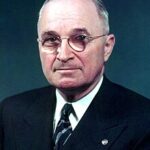Truman’s Strategic Response to Soviet Aggression
On June 24, 1948, Soviet forces blocked all land routes to West Berlin. This bold move threatened 2.5 million West Berliners with starvation. President Harry Truman faced a critical decision that would define the Cold War’s trajectory.
Truman rejected military confrontation, choosing diplomatic brilliance instead. He authorized Operation Vittles, the largest humanitarian airlift in history. American and British planes would deliver food, fuel, and supplies directly to West Berlin’s airports.
The Scale of the Berlin Airlift Operation
The airlift required unprecedented logistical coordination. ✈️ Allied planes flew 278,228 flights over 15 months. They delivered 2.3 million tons of supplies to sustain the besieged city. At peak operations, planes landed every 30 seconds at Berlin’s airports.
📊 Daily deliveries included 13,000 tons of food and fuel. American taxpayers spent $224 million on the operation. Britain contributed additional resources and aircraft to support the mission.
International Coalition Building
Truman masterfully built international support for the airlift. The operation demonstrated Western unity against Soviet expansion. France, despite initial hesitation, eventually supported the mission. This cooperation strengthened NATO’s foundation before its official formation.
Impact:
Immediate Success Against Soviet Strategy
The Berlin Airlift completely neutralized Soviet objectives without military conflict. Stalin’s blockade aimed to force Western powers from Berlin through economic starvation. Instead, the airlift turned Berlin into a symbol of Western determination and Soviet oppression.
🌍 International opinion shifted dramatically in America’s favor. The peaceful response contrasted sharply with Soviet aggression. West Berliners embraced American leadership, creating lasting diplomatic bonds. Stalin eventually lifted the blockade on May 12, 1949, admitting strategic defeat.
Long-term Cold War Impact
Truman’s decision established containment doctrine’s practical foundation. The airlift proved America would defend democratic allies without resorting to warfare. This precedent influenced American foreign policy throughout the Cold War era.
The operation directly catalyzed NATO’s creation in April 1949. 💰 Economic cooperation between Western allies deepened significantly. West Germany’s integration into Western institutions accelerated after witnessing American commitment.
Historical Legacy and Democratic Values
Historians consistently rank the Berlin Airlift among Truman’s greatest achievements. The decision demonstrated that peaceful determination could triumph over authoritarian pressure. 🔥 The airlift prevented World War III while preserving democratic principles in Europe. It established humanitarian intervention as a legitimate tool of American diplomacy, inspiring future peaceful conflicts resolution strategies.
